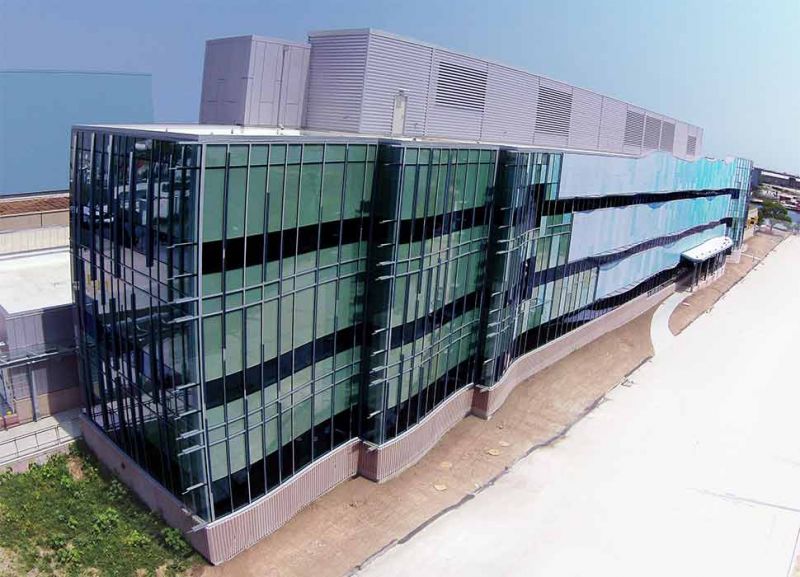An Education in Water at the UWM School of Freshwater Sciences
Published on by Water Network Research, Official research team of The Water Network in Academic
School of Freshwater Sciences is an academic division of the University of Wisconsin–Milwaukee focusing on freshwater research and graduate education.
It went a long way since its foundation in the 1960's and now it draws talents from different fields, both for business and research-driven ideas and purposes in water industry.
Casey Schroeder brings you more about it, in the article for Milwaukee science.

Source: UWM
UW-Milwaukee’s School of Freshwater Sciences today stands as the cornerstone in a movement to make Southeastern Wisconsin a powerhouse in water research and industry. What started as the “Center for Great Lakes Studies” in the 1960s on the campus of UW-Milwaukee, has evolved over the last two decades through the establishment of The Great Lakes WATER Institute,
The School of Freshwater Sciences (SFS), and the purchase and development of the beautiful new facilities along the harbor south of downtown. Today, SFS draws a breadth of interdisciplinary talent across Genomics, Toxicology, Fish Ecology, Environmental Chemistry, and Engineering, who do water related work – both for business and research.
Harvey Bootsma serves as the graduate program representative. He came to UW-Milwaukee eighteen years ago. Harvey has a passion for freshwater, which extends beyond North America and our Great Lakes (the Laurentian Great Lakes) to the African Great Lakes in East Africa.
After receiving his PhD from the University of Manitoba and completing his post-doc at the NOAA Great Lakes Laboratory in Ann Arbor, Michigan, Harvey worked for three years on an international biodiversity conservation project on Lake Malawi, one of the three African Great Lakes. He also collaborated with Russ Feingold when Feingold was Special Envoy to the Great Lakes Region of Africa under the Obama Administration.
Harvey is currently studying how the African Great Lakes are being affected by land use change and climate change, and has a graduate student from Africa studying Lake Malawi. That being said, he has worked extensively with our Great Lakes as well. He has worked to understand the causes of troublesome algae growth in Lake Michigan and the other Great Lakes and to determine how the Lake Michigan food chain is being affected by invasive species like quagga mussels and the round goby.
All of which are relevant to Harvey’s principle contribution to the core curriculum of the school, the course: Aquatic Ecosystem Dynamics.
The school, he says, is research focused, with an emphasis on hands-on training. Professors and students work closely with the Environmental Protection Agency (EPA), Milwaukee Metropolitan Sewage District (MMSD), the Department of Natural Resources (DNR), and The Fish and Wildlife Service. In addition to a PhD, the school currently offers a master’s degree with two tracks.
The first is a conventional master’s program in Freshwater Science focusing on research and ending in a thesis of publication quality. The second is a professional program focused on industry and management, culminating in an internship, “to facilitate the development of specific technical skills related to water.”
Whatever track they are on, students get a background in business, communication, mathematics, and the empirical science of the discipline of freshwater.
Harvey says the school sees a wide variety of students, with ages ranging from 20 to 70. Some of them are on a traditional academic track straight from an undergraduate degree, while others are mid-career, looking to take the next step. Students on the professional master’s track and just starting out may intern at such places as MMSD, Veolia, or non-governmental organizations (NGOs) serving third world countries to help launch their careers.
But students from the conventional master’s track or PhD may also find work outside of education or academic research, working in such areas as professional consulting or for the United States Geological Survey (USGS).
While the school does not offer undergraduate degrees, it draws interest from undergraduate programs throughout the UW system, and provides opportunities for students to conduct internships or work as summer students in the school’s research program.
Read full article: Milwaukee Science
More information on the school, its research , and programs, can be found at
Attached link
http://www.youtube.com/embed/AZEax1rqwRYMedia
Taxonomy
- Hygiene Education
- Education & Research
- Resource Management
- Water Resource Mapping
- Freshwater
- Water Management
- Education
- Water Education